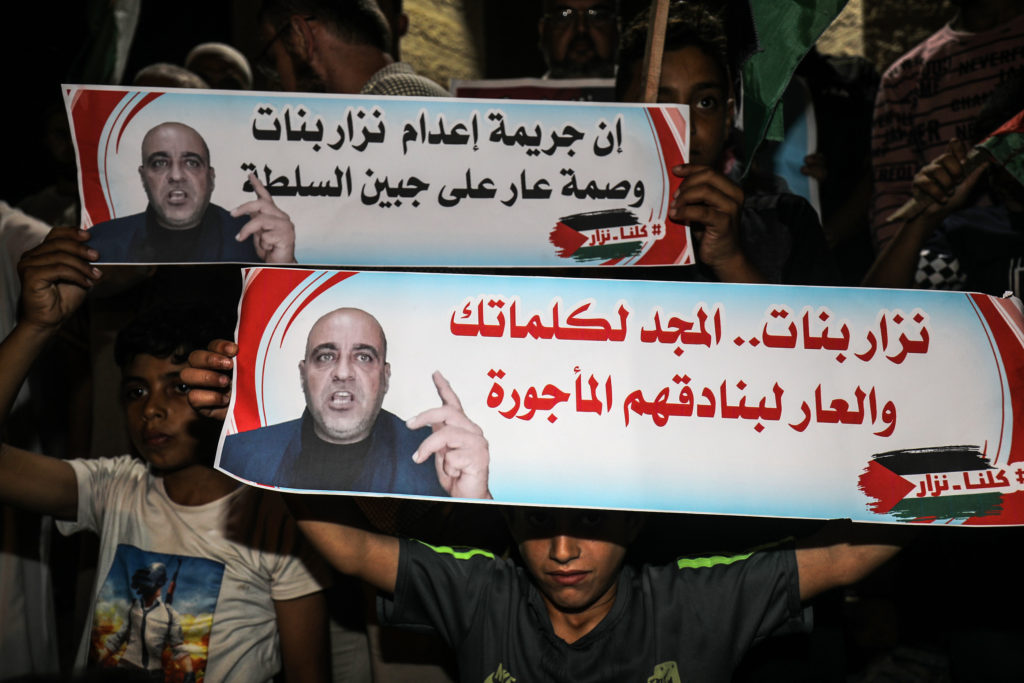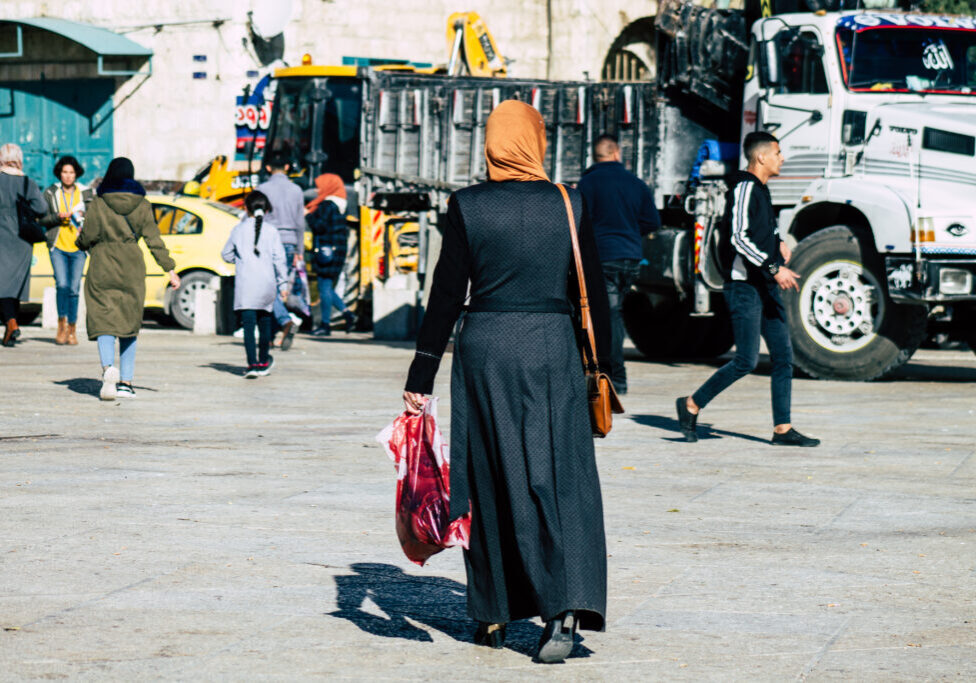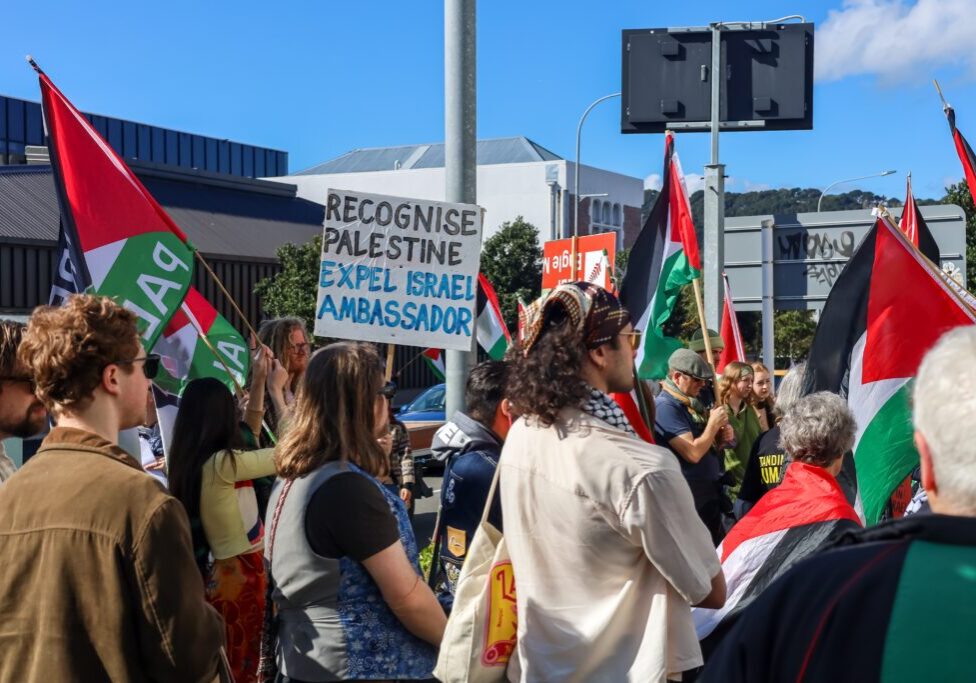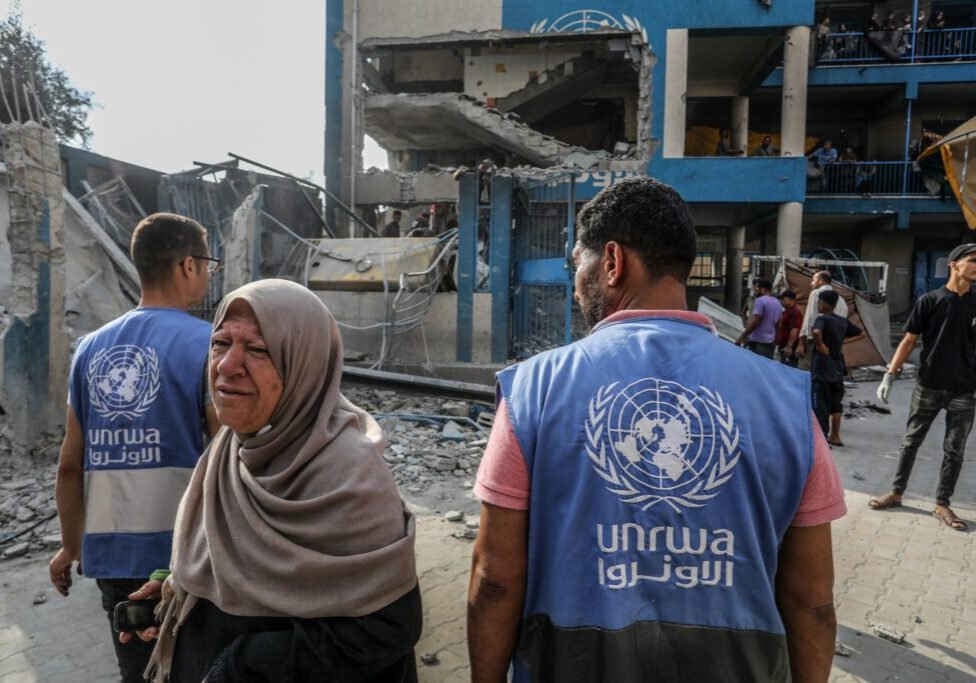Australia/Israel Review
The Perils of the “Palestinian Spring”
Aug 2, 2021 | Mark Lavie

Anti-government demonstrations sweep through the cities. The regime responds with violence, beating protesters, arresting hundreds. Those actions trigger more protests and more arrests.
We’re talking about the West Bank in 2021 – but on a larger scale, it could have been Egypt in 2011. That’s why some observers are calling the current wave of demonstrations in the West Bank the “Palestinian Spring.”
Palestinians better hope they’re wrong. Israel, too.
I watched in Cairo as Egypt’s Arab Spring unfolded and then unravelled. For their efforts, the young protesters got, first, a Muslim Brotherhood government, and then a new, repressive military regime in the space of two short years.
That’s all it took for the situation in Egypt to return to square one – from one military-backed dictator, Hosni Mubarak, to another, Abdel Fattah el-Sisi.
It took me a whole book to explain what went wrong (Broken Spring, Gefen, 2014), but the parallels with the Palestinians are striking. So are the contrasts.
Like Mubarak, who ruled Egypt for nearly 30 years through a string of rigged elections, Palestinian President Mahmoud Abbas is now in the 17th year of his four-year term. He has repeatedly cancelled elections, fearing, probably rightly, that his main rival Hamas would sweep into power. He most recently called off elections set for May, causing considerable unrest.
The Palestinian uprising, if that’s what it turns out to be, started with the brutal murder of activist Nizar Banat, who openly criticised the Abbas regime for its abuses and corruption. He was killed in a late-night raid near Hebron in the southern West Bank on June 23. Reliable reports say about 20 Palestinian Authority police stormed his home and beat him to death.
Protests erupted over the arrest and summary execution of the activist. Clearly, though, this was just the trigger.
The popularity of Abbas and his regime has been dropping steadily for years, as his corruption-riven presidential term drags on and on with little to show in improving the lives of his people, neither making peace with Israel nor, alternatively, defeating Israel.
Here is the most significant similarity with Egypt of 2011: The only well-organised alternative to Abbas and his reeling Fatah movement is Hamas.
In Egypt, the revolutionaries split into more than a dozen political parties after Mubarak was overthrown, continuing their demonstrations in downtown Cairo against the temporary military regime that replaced him.
Meanwhile, the Muslim Brotherhood took to the streets more effectively, mobilising its supporters in advance of the presidential and parliamentary elections that were to follow. They won both.
In the West Bank, the ruling Fatah movement led by Abbas is breaking into factions, squabbling about candidates and personal fiefdoms, and losing the support of the people because of its excesses and abuses. Much the same way, Mubarak’s regime lost the backing of Egyptians because of its heavy-handed repression and overt corruption.
It is a coincidence that Hamas is an arm of the Muslim Brotherhood in the Palestinian territories, but it is no coincidence that Hamas is organised in the same way as the Brotherhood.
Hamas presents itself as a corruption-free, efficient, caring alternative to the high-handed, callous Abbas regime. Fourteen years of brutal Hamas rule in Gaza should have put a spike in that image, but polls indicate that Hamas has considerable support among West Bank Palestinians and, just as Abbas fears, Hamas would probably win elections for president and parliament.
Now the stories begin to diverge.
In Egypt, remnants of the Mubarak regime in the courts and civil service stymied the Brotherhood Government every step of the way.
A year of chaos spurred the people out into the streets again for a second revolution, deposing the elected Brotherhood Government. So, they got the military back, led by “retired” chief of staff Sisi. He is still in power.
In stark contrast, if Hamas takes over the West Bank it will be there to stay. There will be no military to “save the day.”
Hamas will eliminate Fatah and its forces in the West Bank as it did when it overran Gaza in 2007, throwing Fatah operatives off the roofs of high-rise buildings for starters.
If the demonstrators think they have earned the right to continue to criticise the regime, they will find themselves behind bars or worse, just as they did in Egypt.
And of course, as in Gaza, Hamas will divert resources and supplies away from the people to support its own platform, which contains only one plank – fighting Israel.
That policy would not upset too many Palestinians, as Fatah has made a science of blaming Israel for everything that’s wrong in its own backyard. After more than two decades of this, many Palestinians believe it.
They will cheer as Hamas fires rockets into Israel from the West Bank, and cry miserably for the cameras when Israel retaliates, trained as they are to wallow in their suffering in order to pluck at the heartstrings of their supporters around the world.
That will leave Israel with several choices, none of them good:
- Absorb the attacks with limited retaliation, as it does with Gaza
- Hunt down and kill the Hamas leaders responsible for the attacks
- Launch an invasion to recapture control of the West Bank, and deal daily with bloody attacks and “resistance” – and international condemnation
Those would be the results of a successful “Palestinian Spring” uprising that overthrows Mahmoud Abbas and his Fatah.
As the adage goes – be careful what you wish for.






